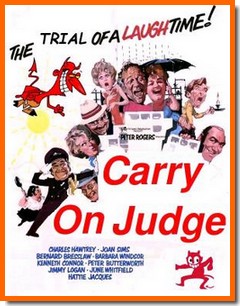Nineteen year old Lorraine Mbulawa got up in the middle of the night, put on black clothes and donned a black 'balaclava', went downstairs to get a sharp kitchen knife and then stabbed her sleeping mother five times in the face, arm and shoulder in a frenzied attack.
But Mrs Sisbsisiwe Mbulawa is a tough cookie. When she awoke grappling with her assailant she thought a burglar had got in and fought for her life. You can imagine how shocked she was when she pulled the balaclava off and found it was her own daughter who was apparently trying to kill her.
Her daughter's rage expired and Mrs Mbulawa, with flesh hanging off her arm and blood everywhere first called a relative for help. He called the police. When the police arrived they found Mrs Mbulawa consoling her daughter.
Lorraine Mbulawa was in serious trouble; the attack was inches away from severing an artery which would have meant instant death for her mother. The police found Lorraine, not unnaturally, to be in a state of shock but when they charged her at the Police Station soon afterwards she denied knowing anything of the incident.
She maintained that her memory of the actual attack was a complete blank. All that she remembered, she said, was that she had dreamed that her deceased paternal grandmother's spirit had appeared at the end of of her bed and told her that her mother was responsible for the death of Lorraine's father a decade earlier so she must kill her Mother to set the matter straight.
She had, she inferred, committed the attack whilst being possessed by the shade of evil spirits and witchcraft.
She claimed to have committed the attack whilst being possessed
You may wonder why this irrational tale was even considered as an explanation but it is testimony to the lowered standards of jurisprudence in this country, mostly generated by the constant sensationalism of the Satanic Ritual Abuse Myth, that Lorraine Mbulawa's Defence had the cheek to think they could present this supernatural story in court. Confirmation of their wisdom was seen in the fact that
on 24th May 2011, Lorraine walked free from the Crown court at Leeds when the judge hearing her case accepted her excuse that she was temporarily unable to distinguish right from wrong and control her actions because she was basically, possessed by the devil.
Spectral Evidence
So it was that for the first time in several hundred years, supernatural fantasies which used to be officially termed
'Spectral Evidence' made their reappearance in British Law after being banned from court as the root cause of the manic witch-hunts of the 15th and 16th centuries which sent thousands of innocents to the gallows.
The Background
Lorraine Mbulawa and her mother emigrated to the UK from Zimbabwe in 2002 when she was aged eleven. They made a life for themselves here but recently Lorraine had been at a loose end. Getting some A levels she ran the gamut of Labour's stick-em-
in-the-college-to-reduce-the unemployment-stats social engineering schemes but apparently being disinterested in the opportunities offered on the Mickey-Mouse health and social studies course she failed to attend college in the six months prior to knifing her mother.
Walter Mitty Life
Although Lorraine seemed at a loss she was not involved in drugs or crime but did apparently live a somewhat Walter Mitty life. She is on record as telling outrageous lies to get her way and absence herself from her college course. Lorraine had even claimed to have been kidnapped in the lead up to the trial but was traced when she used her mobile phone.
"
Her aunt in Leicester tried to contact her the next day, but received a text from the defendant's phone saying: "I don't know who you are. I'll help you get your friend back. She's been a target for weeks." The aunt alerted police, who caught up with Mbulawa when she was a passenger in a car in Ipswich. It was being driven by her boyfriend, and she was there of her own free will. He told police she had appeared subdued but that was understandable because she had (falsely) told him her mother was in a car crash and had died 10 days earlier, the court heard."
Her mother, a nurse, described their relationship as 'good' but on May 13th 2009 (nine) Lorraine Mbulawa
attacked her
sleeping mother in the middle of the night stabbing her five times - it is a miracle that
Sisbsisiwe Mbulawa didn't die.
To explain her actions the daughter said she had 'dreamed' that her dead paternal grandmother appeared to her in spirit and told her to kill her mother because she (the mother) had caused the death of the daughter's father in Zimbabwe. There is no suspicion of that having happened but the father had died suddenly one night without prior symptoms when Lorraine was at a formative age and it had obviously struck deep into her subconscious.
Superstition and the Supernatural
Although a rationalist would see most family conflicts as a result of unwise decisions and petty
jealousies Old-Style Africans are highly superstitious. In their pantheistic world where everything
is of spirit they see bad luck, accidents and tragedies as being caused by magic or evil entities,
first and foremost. This can cause a self-fulfilling prophecy where one person suspects
another member of the family is bewitching them, and will resort to sorcerers and soothsayers
for psychic protection. Of course this magnifies the problem
because resort to sorcery is so frequent that on the better-safe-than-sorry principle it is
wise to assume that enemies will cast a spell on you.
Lorraine had grown up in the commercial materialism which is modern Western life.
Like most young people of African descent who have been assimilated into the yoof culture,
they give scant credence to supersitions of the old country. She would however be aware of them
and that the family believed in the presence of spirits.
A policewoman who attended the emergency call saw Lorraine's behaviour as 'strange' and wrote in her notebook that she appeared to be 'in a trance.' The court gave great weight to this statement - but seemed to ignore the other statement from the policewoman that Lorraine began to shiver and shake (symptoms of shock which do not occur in a trance state)
When charged at the police station Lorraine denied any memories of the
attack. The mother supported her daughter throughout, also confirming their personal belief in possession.
At trial the defence obtained an expert witness who said that from accounts of the night the girl
appeared to be in a dissociated state. Professor Nigel Eastman, excusing Lorraine Mbulawa, said that
if criminal motives were ruled out, it was possible she was suffering from a
"psychological disorder of consciousness".
The prosecution accused Lorraine Mbulawa of making up the whole thing to cover
her tracks. They pointed out that she had changed clothes and made a 'balaclava' out of an old hat by cutting eye holes in it, obtained a knife from the kitchen and then attacked her mother - indicating presence of mind and prior planning. But Lorraine insisted she could not remember anything.
To emphasise the pantheistic beliefs of Africans Professor Jean La Fontaine appeared for the defence. Professor of social anthropology at the London School of Economics, Ms Fontaine said there was popular belief in spirits in the defendant's homeland, Zimbabwe and that some really do believe in possession as a reality.
Conclusions:
 There are some disturbing questions raised by this case and the lackadaisical way that the court handled it which show a distinct lack of intellectual rigour. In particular the following questions were not asked:
There are some disturbing questions raised by this case and the lackadaisical way that the court handled it which show a distinct lack of intellectual rigour. In particular the following questions were not asked:
- Lorraine had time to self-construct a 'balaclava' so the spirit-dream must have ocurred at least one night prior to the attack and not on the night of the attack itself,therefore the attack could not be spontaneous. When did the spirit of the grandmother first appear to Lorraine, when did it first demand she kill her mother and how many times did the spirit appear in total (presumably at least twice)?
- Why did the grandmother's spirit wait a decade before appearing to order Lorraine to take action to avenge her father's death? That is: what other situations and stresses in Lorraine's life could have caused the vision?

- When Lorraine made up the tales about having been abducted and told her boyfriend that her mother had been killed in a car crash, did her Grandmother's ghost tell her to do that or did she just invent it?
- Had Lorraine ever been exorcised? There are MANY instances of people becoming imbalanced following Christian rites of exorcism and then murdering or attacking family members. As we have seen Lorraine's mother specifically went out of her way to term Lorraine and herself 'Christians' in court in relation to her possession. This would of course
completely nullify any inference that Lorraine's actions had been conditioned by
the pantheistic paganism of Zimbabwe and instead put the blame for her distress at the feet of Christian fundamentalism instead. (see here for many examples of how this works )
As far as the implications of the court case itself is concerned there are TWO major aspects:
(1) A person's belief in the existence of supernatural powers does not excuse them from
behaving lawfully.
If that was not the case Moslem suicide bombers could claim exoneration because they believe wholeheartedly that their atrocities were divinely inspired. Honour killings would be supernaturally justified and attacks by Christian fundamentalists on abortion centres would be similarly excused. The SAFF has a large volume of case files which show that religious and spiritual beliefs are often used to justify terrible crimes.
For example, The Yorkshire Ripper murdered and mutilated his victims 'because God told him to'.
I wonder if the judge in Peter Sutcliffe's trial would have got away without censure if he had claimed
that The Ripper could be set free early because he really, really, believed god told him to do it?.
(2) The presentation of subjective evidence about the state of the accused's mind by the accused cannot possibly be validated.
. If it is not a lie then it is irrelevant other than to point out the irrational state of mind of the accused at the time. And that is the point:
This trial was not about guilt but the WEIGHT of guilt. The crux of the question in law was whether Lorraine Mbulawa MEANT to kill her mother when she attacked her or whether she was taking revenge for an imagined wrongdoing in a 'crime of passion'.
All the ancillary stuff about spirits and possession is simply bunkum for the purposes of the trial yet it was
skilfully used by the defence to bring the Jury on-side and persuade them that this was more a 'crime of passion' than a premeditated attempt at murder.
The key anthropological expert witness for the defence (prof: Jean La Fontaine) was there to explain that some people from Zimbabwe DO believe wholeheartedly in the spirit world and in the possession of the body by spirits. This does not and cannot confirm that Lorraine Mbulawa truly believed in it though there was a telling statement in court reported by the Daily Mail:
[Mrs Mbulawa] said she believed in witchcraft and evil spirits and said her Christian
daughter did not seem her real self during the incident.
This leads us to speculate that although much of the supernatural content of the
justification for the attack had been projected onto 'the occult' that the original tribal beliefs in Zimbabwe which Professor La Fontaine was referring to had in this family been modified by a belief in fundamentalist Christianity. When the true story is known it could very well be another instance of OTT evangelicals seeing Satan under every Sofa.
The key psychology expert witness, Professor Nigel Eastman tried to establish that a person can suffer
from dissociation (previously called Multiple Personality Disorder - MPD )
in which they can operate as two distinct people, the one not knowing what the other is doing
or has done. The idea of MPD goes against common sense and common experience. It is not fully
accepted by psychologists and is untested but has become popular in cases like this where people
have acted grossly out of character or seemingly inexplicable actions have occurred.
It was not up to the jury or the court to decide on whether possession of the body by spirits is real but to decide whether, if a person truly believed they were possessed their volition and understanding of the severity of their actions was impaired.
The Jury's verdict was that there was insufficient evidence to prove that there was 'malice aforethought' and so they reduced the charge to 'unlawful wounding'.
Ultimately the jury rejected the idea of dissociation and the judge said:
... by convicting Lorraine of unlawful wounding the jury rejected her
claim she was in a "dissociative"* state at the time of the attack.
Media Field Day
 All this apparent consideration by the court of whether claims of possession of the accused by dead people could be considered a defence in court played straight into the hands of the tabloid press and went around the world. There was much mis-use of the words 'witchcraft', 'possession' and 'occult'
Of course there was nothing 'occult' in the trial and certainly no 'witchcraft' had taken place yet
the abiding impression given to
the public, yet again, was that poor 'possessed' Lorraine had been compelled into attacking her
mother by some evil force linked to witchcraft or the occult.
All this apparent consideration by the court of whether claims of possession of the accused by dead people could be considered a defence in court played straight into the hands of the tabloid press and went around the world. There was much mis-use of the words 'witchcraft', 'possession' and 'occult'
Of course there was nothing 'occult' in the trial and certainly no 'witchcraft' had taken place yet
the abiding impression given to
the public, yet again, was that poor 'possessed' Lorraine had been compelled into attacking her
mother by some evil force linked to witchcraft or the occult.
It is a licence for every other superstitious dimwit to take the law into their own hands and claim the 'Devils Defence'.
Ends:
John Freedom: Mortlake May 2011



